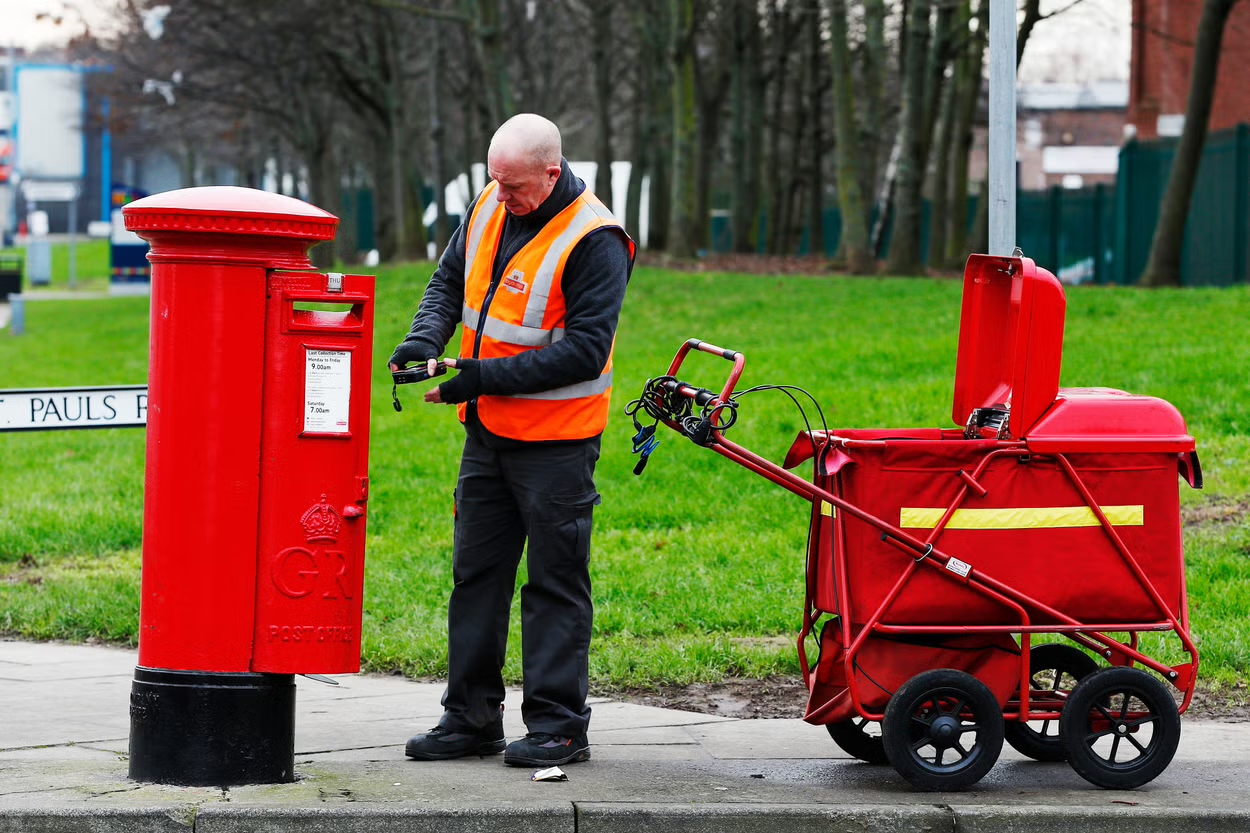The 508 Year Old Royal Mail Considers Offer

A new bid for the 508-year-old Royal Mail has been put forward just before the deadline for EP Group, now extended. This proposal includes 360p a share in cash and the rest in dividends, featuring an 8p a share special dividend conditional on the transaction's completion.
Shares in International Distributions Services (IDS) rose 43.5p, or 16%, to close at 314.75p on the London Stock Exchange, still below EP’s offer price. Keith Williams, IDS’s chairman, indicated that the board is inclined to recommend the offer, stating that the price is fair and reflects the value of growth plans at GLS, IDS's European logistics business, and the ongoing changes at Royal Mail to handle the drop in letter demand and rise in parcels.
Royal Mail, older than the USA and a symbol of British heritage, reflects the nation’s historical reliance on postal services. Established in 1516, it has been a cornerstone of communication and commerce in the UK for centuries. Despite its age, poor management has made it vulnerable to takeover. EP has agreed to contractual promises to protect public interests and recognise Royal Mail as a key part of national infrastructure. These agreements, which are still being negotiated, will be submitted to the government if EP makes a firm offer.
The promises include maintaining a financially sustainable universal service with one-price-goes-anywhere in the UK and first-class letter delivery six days a week. They also aim to protect employees' rights, the Royal Mail brand, and name, continue recognising existing unions, and retain headquarters and tax residency in the UK.
The enhanced bid was made just hours before the 5pm deadline for EP, which holds 27.6% of IDS through its Vesa Equity vehicle, to make a firm offer or withdraw. The deadline has now been extended to May 29.
The takeover has faced opposition from the Communication Workers Union (CWU), representing many postal workers, pushing Labour to commit to renationalising Royal Mail if it gains power. Dave Ward, the union’s general secretary, insisted EP must rule out any company break-up or pension surplus raids, warning of a campaign to put postal services at the heart of the general election. Ward emphasised the critical role Royal Mail plays in the UK's infrastructure and the potential risks of a foreign takeover without strict safeguards.
Labour's shadow business secretary, Jonathan Reynolds, wrote to Kretinsky demanding firm guarantees on Royal Mail’s future. These safeguards seem reflected in discussions between IDS and EP. Reynolds stressed the importance of maintaining Royal Mail’s status as a British institution and ensuring its continued service to the public.
Reynolds said: "While it's important for Britain to stay open to foreign investment, Royal Mail is a British institution with a unique role in our society and infrastructure. Royal Mail is quintessentially British, and Labour will ensure its identity and public role are protected." His statement underscores the broader political and public concerns regarding the potential foreign ownership of such a historic and essential service.
Kretinsky, who also invests in J Sainsbury and West Ham United football club, has tried to reassure critics. He intends not to split IDS by separating Royal Mail from GLS, to protect the pension scheme surplus, and to avoid compulsory redundancies. His efforts are seen as attempts to mitigate fears of drastic changes that could harm the company’s long-standing operational structure and its workforce.
The approach comes as Royal Mail aims to recover from a long, costly industrial dispute over pay, conditions, and modernisation plans. This includes a focus on its more profitable parcel delivery business amidst a declining letters market. The shift towards parcel delivery is a strategic response to the digital age, where traditional letter mail has significantly decreased.
Amanda Fergusson, chief executive of the Greeting Card Association, stated: "We need these principles enshrined in any undertakings between the government, IDS, and EP Group before recommending this offer." Her statement highlights the importance of formal commitments to safeguard the future operations of Royal Mail, ensuring it continues to serve the public effectively.
As discussions continue, the future of Royal Mail hangs in the balance. The proposed takeover reflects broader trends in the global postal industry, where traditional mail services face pressure from digital alternatives and the need to adapt to new market realities. The outcome will not only shape the future of Royal Mail but also serve as a bellwether for the UK's approach to foreign investment in critical national infrastructure.
World Liberty Seeks Federal Trust Charter
World Liberty Financial, the crypto venture backed by the Trump family, has applied for a US national bank trust charter... Read more
Saudi Banks Tap Overseas Markets
Saudi Arabia’s banks are borrowing from international markets at their fastest pace on record, as lenders try to squar... Read more
Amazon Continues To Cut 16000 Gone
Amazon has announced plans to cut a further 16,000 roles from its corporate workforce, extending the cost and organisati... Read more
The UK May Have A Voice In Ai
Europe’s AI sector has grown accustomed to playing catch-up. Capital has flowed more slowly than in Silicon Valley, va... Read more
Musk Applies Pressure To BT
Britain’s broadband market has spent the past decade locked in a familiar pattern. Incumbents invested heavily in fibr... Read more
Blackrock Sees EMEA Moving Into Private Assets
BlackRock has warned that investors across Europe, the Middle East and Africa are reshaping portfolios in response to wh... Read more

